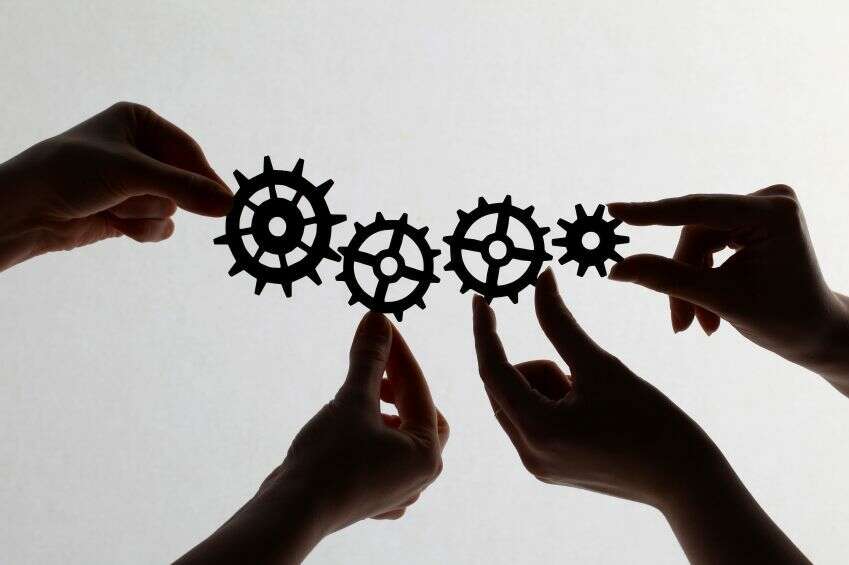Civil society is keeping the country going while government institutions are paralysed. [Picture: Belgrade Open School]
While David Mabuza walks away from the Union Buildings with all the perks of a deputy president this week, more than half of South Africans languish in poverty. Yes, he takes a R3 million salary, VIP protection, travel privileges and the works despite not completing his term.
Cyril Ramaphosa and The Cat – as Mabuza nicknamed himself – have reigned over a period of immense crisis. When they took office in 2018, 26.91% of the population was jobless. The subsequent Covid-19 pandemic dramatically increased this to more than 30%.
Floods, droughts and a crippling energy crisis have cropped up without warning. A looting spree engulfed KwaZulu-Natal and Gauteng and decimated businesses. This means that despite bold promises of a new dawn, the situation has only worsened since 2018 – except for a minor gain here and there.
None of the challenges we face today are actually specific to the current administration. Much of it has to do with years of negligence and mismanagement fuelled by ineptitude and self-enrichment. The result? A hobbling country barely able to sit up, much less stand straight. A country with two nations; one rich and one poor.
SMread: Youth unemployment can be solved
A golden era
Slow down, dear reader! In the chaos of the present, we forget there once existed a more hopeful era – when things were actually working and improving! Of course, the gains made between 1994 and 2009 have been overshadowed by the calamitous reign of Jacob Zuma.
To be sure, there were shortcomings of the Mandela and Mbekite presidencies respectively; HIV denialism to name but one. But the economy was performing well enough that things could have been a lot more different today.
Letters from a former Eskom CEO and chairman were released to mark Eskom’s 100th birthday last week. The optimism therein reflects the positive sentiment of that era that seems almost to have never existed when we look back today.
“The challenges facing us must surely have been met and overcome by the time you read this — challenges such as crime, poverty, unemployment, illiteracy and disease,” wrote Reuel Khoza.
CEO Allen Morgan had a warning for us: “Since the mid–1980s we have had a surplus of generation capacity that we have managed. We predict that this will have disappeared around 2007, but you know whether this prediction was accurate or not”.
But then came the financial crisis of 2009, which coincided with the start of Jacob Zuma’s greedy grip onto power. His reign of terror was to a great degree the very destructive force that hounded, hollowed and nearly halted the state at the precise moment when it should have focused on safeguarding the downtrodden. But he had other plans.
He left the country on the brink of ruin and gleefully showed a middle finger when he ignored the State Capture Commission in 2021. But focusing solely on his tyranny blinds us to the longstanding politics that have undermined our democracy and the ineffective leadership that has kept us hanging at the cliffside.
SMread: Court rules in favour of Afghan asylum seekers
Civil society
The government’s dereliction of duty, particularly since the demise of the golden era in 2009, meant that much of its functions are steadily being assumed by civil society and the private sector. While it may be premature to determine South Africa is a failed state, we’re not far from it. In other words, we’re dangerously close to it.
Civil society is a deeply important facet of any democratic society. Such organisations are meant to keep the government in line and advocate for betterment of lives. In South Africa, they have the added burden of basically performing the duties which the government ought to fulfil but has discarded.
Think Gift of the Givers. Think Treatment Action Campaign. Think Corruption Watch. Better yet, think of the ordinary South Africans who dug into their pockets to feed others during the lockdown. Or the many who suffered sleepless nights amidst the anarchy of July 2021, while Police watched on.
When it reaches a point where law-abiding, tax paying citizens have to go far beyond the extra mile to keep our country going, we know the government has failed us. But for how much longer will the rest of us remain passive, only occasionally moaning when the taps run dry?
While the president seems to be struck by paralysis, it is civil society who have borne the weight of inefficiency. The nation deserves better. It should get better, before the last thread snaps.
